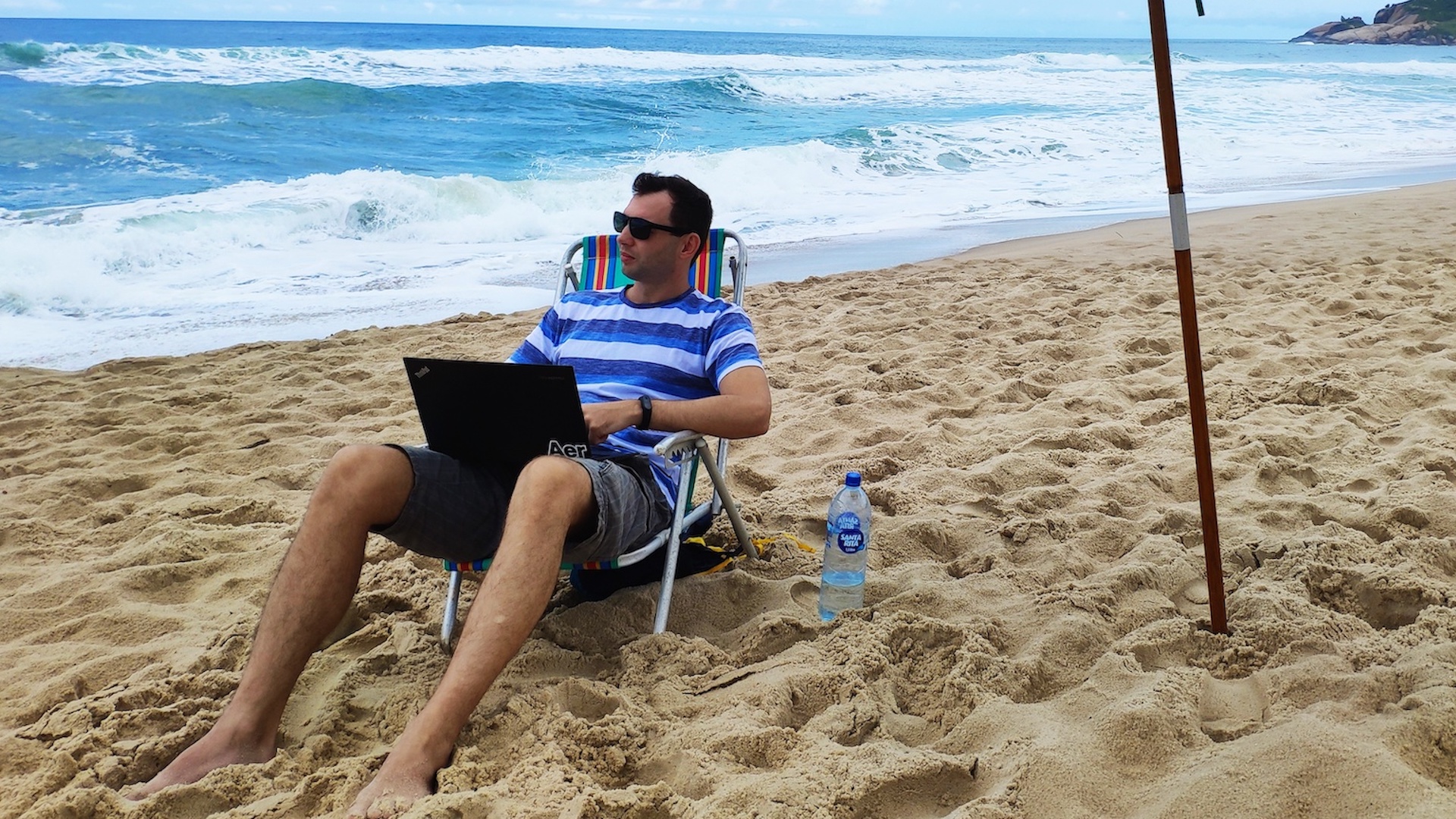While in 2007 there were only fourteen shared offices globally, a decade later their number reached fourteen thousand and currently there are about 25,000 coworkings. The Czech startup CoworkBooking believes that their number will continue to grow, even in response to the coronavirus pandemic, which forced companies and their employees to rethink the way they work.
“Humanity has been moving towards the future of remote work for the last few years. Often despised digital nomads were simply the first to adopt the idea. ” says Jiří Opletal, co-founder of CoworkBooking, who has been leading the company from various countries in South America for the last few months.
“The pandemic has shown companies and people that they can often work more efficiently, either at home or in the cottage. I am convinced that many people have already had the thought that if they did it from home, they would be able to work from the sea or the Alps. The system of work will change, offices will lose their archaic significance today, “ tells in an interview a 34-year-old businessman who, after selling his original company importing Chinese smartphones, fully embarked on another business.
Jiří Opletal founded the startup CoworkBooking together with Marek Tůma and Jan Dohnal in 2018, when they launched a test run of a system for booking seats in shared offices. This took place until February of this year – in the meantime, the team focused mainly on establishing contacts with coworking operators.
However, the team now considers focusing on coworking acquisitions to be a classic startup mistake. “We were to burn the MVP, test it, measure it and adjust it on the fly. Not to tune the perfect product in beta operation a year. I learned this experience the hard way, ” admits Opletal. Thanks to this, however, CoworkBooking cooperates with 10,000 shared offices in 165 countries and allows you to book jobs directly in 2,500 of them.
CoworkBooking.com platform
–
In addition, the sharp start of the platform was slowed down by a pandemic at the beginning of this year, but on the other hand, the startup brought new opportunities. Companies had to – often involuntarily – adapt to a new reality full of home offices and virtual meetings. According to Opletal, remote work is becoming a new standard and refers to for studies showing that the share of coworkings in the real estate market will increase from the current five to thirty percent in ten years.
His words partially confirm the steps of the antivirus giant Avast. As recently described its boss Ondřej Vlček, from January next year, the company will stop monitoring how many hours an employee has spent on his task, whether he is sitting in an office in the Czech Republic or in the Canary Islands.
Avast’s attention will be focused purely on real results, and employees will be given the choice of working mainly from the office (in which case they will have a guaranteed desk) or mostly from anywhere (when they get the necessary equipment, including a chair and a table at a selected address).
Although some companies choose fully remote access, some plan to maintain offices and thus offer a hybrid mode. According to Jiří Opletal, however, the biggest future awaits shared offices.
“What companies still have to learn is that working remotely from home is nonsense. They move into coworkers, and the sooner they realize it, the better. This path was already trodden by nomads 15 years ago. They started working from the hostel, then exchanged them for cafes. In the end, they worked from coworkers. For employees, it will go through a similar wheel, “ predicts that it is generally not possible to work from home for a long time.
“Learning to be productive and sustainable in remote work is hard, it’s even harder to do it from home.”
–
“Either it disturbs children or a partner, or on the contrary, one fights alone. Mental health suffers when a person does not separate the work and home environment. I’m not saying it’s impossible, but most people don’t currently have the habits or equipment to make their home office work other than as a few months of diversification before returning to ‘normal.’ Learning to be productive and long-term sustainable at remote work is hard, even harder to do it from home. ” says Opletal.
CoworkBooking therefore wants to help companies prepare for the new reality of work and plans to create a service in the form of “Office as a Service” from the lease of shared office space. At the same time, it is launching a special service for corporate customers, which will help them with the transition of the company (or part of it) to shared offices. This service is named CoworkBooking.com For Business is available only for companies from the Czech Republic.



